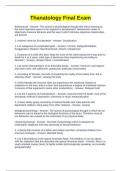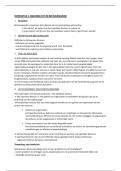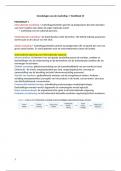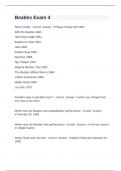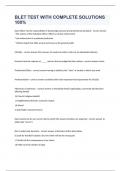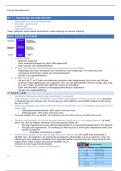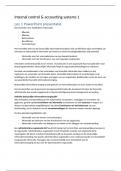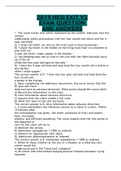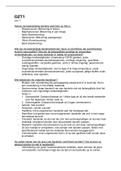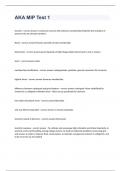Exam (elaborations)
Thanatology Final Exam Questions & Answers
- Course
- Institution
Thanatology Final Exam Behaviorism - Answer- The school of psychological thought that views learning as the most important aspect of an organism's development. Behaviorism seeks to objectively measure behavior and the way in which stimulus-response relationships are formed. 1. Another name fo...
[Show more]
